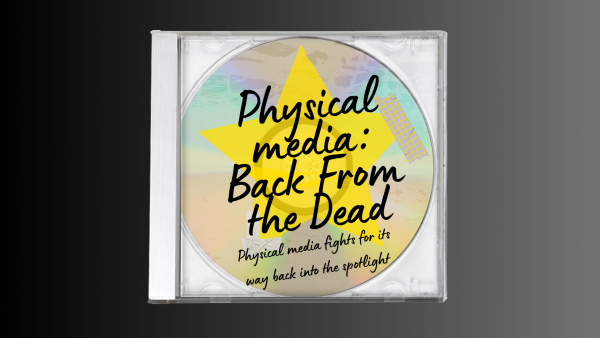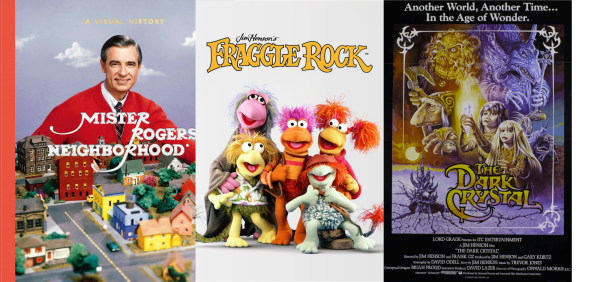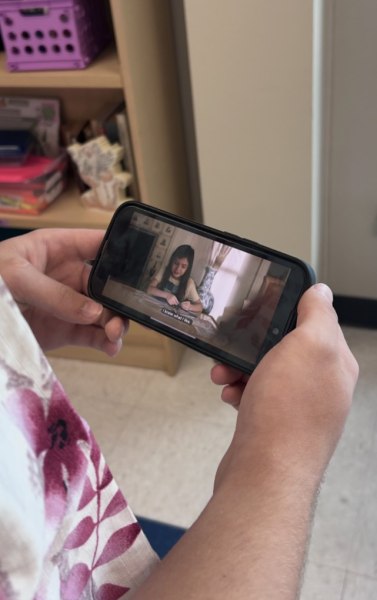CYRANO: Music, Medium, and Retelling
Cyrano:
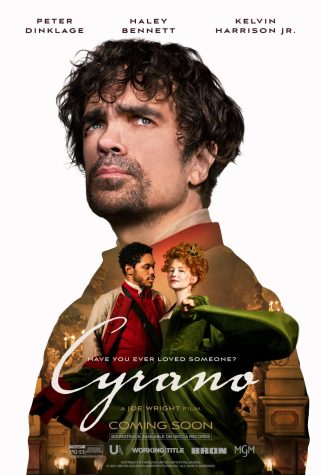
The trailer for Cyrano proclaims: “Experience the greatest love story ever told.” Ironically, I saw the trailer for the first time while watching West Side Story, whose marketing used the phrase: “Celebrate the greatest love story ever told.” The real take away from this is that, apparently in order to be a ‘great’ love story, at least one part of the couple must die. All of this is to say, I’m a sucker for tragic romances, but it would be nice to have a love story end happily- or at least bittersweetly. Cyrano, by virtue of its source material (and the tendency of musicals to grapple with tragedy), was always going to be a movie that pulled on the heartstrings. With its effective updates and strong performances, Cyrano delivers this gut punch in nearly every way.
Cyrano (released in February of 2022 after several months of delays) is a musical movie based off the Edmund Rostand play “Cyrano de Bergerac”. Both stories are about the quick-witted and skilled military leader, Cyrano de Bergerac, who, despite his prowess, is not respected socially. In the play, this is because de Bergerac has an abnormally (near comically) large nose- the movie ditches the nose to utilize Peter Dinklage’s experience as a dwarf. While Cyrano is indifferent to the ostracization from most of his peers, he is in love with Roxanne (Haley Bennett), a woman he feels he will never be able to marry. Complicating matters is Roxanne’s love for Christian (Kelvin Harrison Jr,), a new recruit in Cyrano’s regiment. Christian is handsome, but not the wordsmith to suit Roxanne’s romantic sensibilities. Cyrano offers to write love letters to Roxanne for Christian, knowing that Christian is in love with her. The more time passes, the more inextricably linked the three- and their emotions- become.
Contrary to my belief when I went to watch the movie, Cyrano is not an original movie musical as Erica Schimdt (who wrote the screenplay) had adapted the stage play to a stage musical several years prior. It ran off-Broadway with Schimdt as director (Joe Wright directed the movie) and still starred Peter Dinklage as Cyrano. The original stage cast also included Jasmine Cephas Jones as Roxanne and Blake Jenner as Christian, Bennett would eventually take on the stage role after Cephas Jones, and Harrison would join the movie in 2020. The music for both stage and film was written by Aaron Dessner and Bryce Dessner (of The National) with lyrics by Matt Berninger (also of The National) and Carin Besser. The movie’s choreography was done by Sidi Larbi Cherkaoui (Jeff and Rick Kuperman choreographed the stage show); the gorgeous costumes in the movie were designed by Massimo Cantini Parrini and Jacqueline Durran.
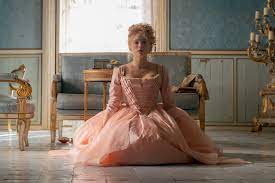
The visuals for Cyrano are undoubtedly suited for screen: the colors are rich and warm, the architecture stunning, the makeup and costumes change frequently to serve the story at all times. All of these elements lead one to expect an old-school musical, but the tone and scale of Cyrano do not corroborate this. There are no grand dance sequences, and the extras act as a chorus for the main characters rather than having large group numbers. On top of this, the scale is localized: the drama of the movie certainly impacts Cyrano, Christian, and Roxanne, but there’s no pretension that this is going to affect the world as a whole. This decision enables the movie to avoid a tacky amount of melodrama, and adds perspective and texture to the world which is only elevated by the music and adaptational changes.
The original play (based off of what I took away from reading it) is hard to categorize. It’s not quite a tragedy, nor is it a romance or comedy; it’s more of a look at the unfortunate circumstances that befall a group of characters. The movie musical, however, transforms its story into a Greek Tragedy-esque narrative. No longer are the characters incidental to the action as much as the action is spurred by the characters, their flaws, and their decisions. Roxanne has narrative power throughout, especially in her relationship with the powerful and intimidating De Guiche (Ben Mendhelson) who wishes to marry her. She uses their relationship to prevent Cyrano and Christian from being sent to the war front, and Roxanne’s rejection leads to De Guiche taking revenge by sending out their regiment. Cyrano is no longer the funny unfortunate- he is a tragic hero, who’s hamartia is his hubris. His pride prevents him from telling Roxanne he loves her, it prevents him from asking for help, admitting he’s unwell, and leads him to face off in conflicts. The ending of Rostand’s play sees Cyrano dying, but content that he will forever have his “Panache”- his essence, his spark, the fiber of his being. Spoilers for the rest of this paragraph: The movie has Roxanne lamenting the fact that she will lose another loved one (Christian died during the war) and tell him that he always had her love. Sadly, Cyrano replies that he: “… had my pride.” Throughout the story, other characters call out Cyrano’s actions and the fault in his ego-centric logic, but he doesn’t listen to them. The tragedy is not only that Cyrano is dying, but that he has denied himself a lifetime of happiness.
Christian’s character is much improved, but not as elevated as the other two. His relationship to being a soldier is given more layers, a product of being trained to fight rather than an interest in it, and he’s no longer the petulant, whiny figure from the play, but he comes across as aloof most of the time. Christian only realizes after he and Cyrano have been transferred to the war front that Cyrano is in love with Roxanne, despite an earlier scene in which Christian watches Cyrano come up with romantic poetry on the spot. He also ignores the fact that Cyrano writes to Roxanne every day, and perfectly understands Christian’s feelings toward her. Whether this is an intentional narrative choice is hard to decipher because the movie never fully commits to this. Christian is introspective enough to realize that he and Cyrano need to come clean about their deception, but doesn’t see the literal paper trail of Cyrano’s affections. Even more infuriating is that a simple change would have fixed this problem and given Harrison’s excellent performance something to work with.
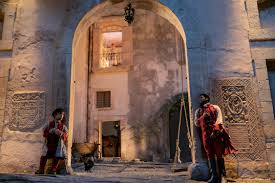
Cyrano is a musical, a financial risk in the modern age, and a medium that requires a large amount of suspension of disbelief. Typically, if an audience can enjoy characters randomly breaking into song, characters randomly breaking into dance isn’t a hard sell either. Cyrano features a lot of music, but only flirts with dancing. The beginning of the movie showcases Bennett’s lovely voice singing Roxanne’s ‘I want’ song: “Someone to Say” as she views the city streets through a carriage window. As she shares her hope of finding someone she loves, she watches couples in the street dance (when Christian reprises this number later, there is also dancing, but the real stars of the show are the puffy sleeves that sway like nothing else). I assumed that this was the set up for a dance intensive musical, making the average music less important, but both versions of “Someone to Say” are really the only numbers that utilize dancing, and the reprise is the only song that features Christian prominently. After “Someone to Say (Reprise)” and a background part in “Every Letter”, Christian doesn’t have much singing to do, so why not make him a dance heavy role instead?
The first time Roxanne and Christian meet in person, Cyrano and Roxanne have already written letters to one another, so Roxanne expects that Christian will be able to speak to her in the same way. What follows is a well-written scene in which Roxanne attempts to get Christian to share poetry with her (a la Moulin Rouge) and Christian trips over himself. It culminates with Roxanne becoming disillusioned and storming off saying: “I need more.” This line serves as the theme and title of her next solo. If reframed, this scene between Roxanne and Christian could serve as a deeper exploration of the differences between them, and why that makes them compatible.
If most of the dialogue is removed, Roxanne could begin singing what is clearly a duet, but when she goes silent in anticipation of Christian’s verse, he dances his response. He’s still expressing his love for her, but in a different capacity. Roxanne becomes frustrated, but they ultimately realize they’re saying the same things, and just have to work on understanding one another. It keeps Christian’s charming and humorous qualities, but also establishes a greater link between his actions and his mind. He’s a soldier- a man of action- and a dancer- which demands physicality while expressing inner thoughts and emotions.
The music of Cyrano isn’t bad, but it doesn’t always support the story in the way it should. Often, the song structure is poorly paced with overlong verses or choruses- which limits the hummability of the tunes. I’ve listened to the song “Every Letter” over ten times since seeing the movie, but I couldn’t tell you how it sounds or remember the order of the lyrics. On top of this, the further into the movie you get, the more similar all of the songs sound. These similarities go beyond using the same instruments, as it also feels like all of the songs are the same tempo. There’s no way to convey urgency or slowness because the music doesn’t audibly reflect it. Despite this, the cast sells the songs; their voices aren’t perfect, but it grounds the characters in a necessary way. In the rare moments where the singing isn’t as strong as it needs to be, the acting more than makes up for it, never taking the audience out of the moment (unless you were my viewing companion, in which case, the last scene was jarring). My favorite song is a tie between “Someone to Say” and “Someone to Say (Reprise)” but the most theatrical song in terms of sound and design is “Every Letter”.
Full of insightful updates and beautiful imagery, Cyrano is a visually rich movie that admirably updates its source material. It not only stands as its own narrative, but also encourages the audience to experience the original. In spite of its lackluster music, the dynamic performances by Bennett, Harrison, and Dinklage keep the story engaging and the characters relatable. As part of the recent renaissance of musical movies, Cyrano has not seen large-scale financial success, but hopefully streaming will allow it the opportunity to be seen by a larger audience, and hopefully, the movie musical genre will continue to expand and make its way back into popularity.
7/10 would try to hum “Someone to Say” again
Further breakdown:
Writing Quality: 8/10 Enjoyability: 8/10
Pace: 8/10 Visual elements: 9/10
Plot development: 7.5/10 Insightfulness: 9/10
Characters: 9/10


